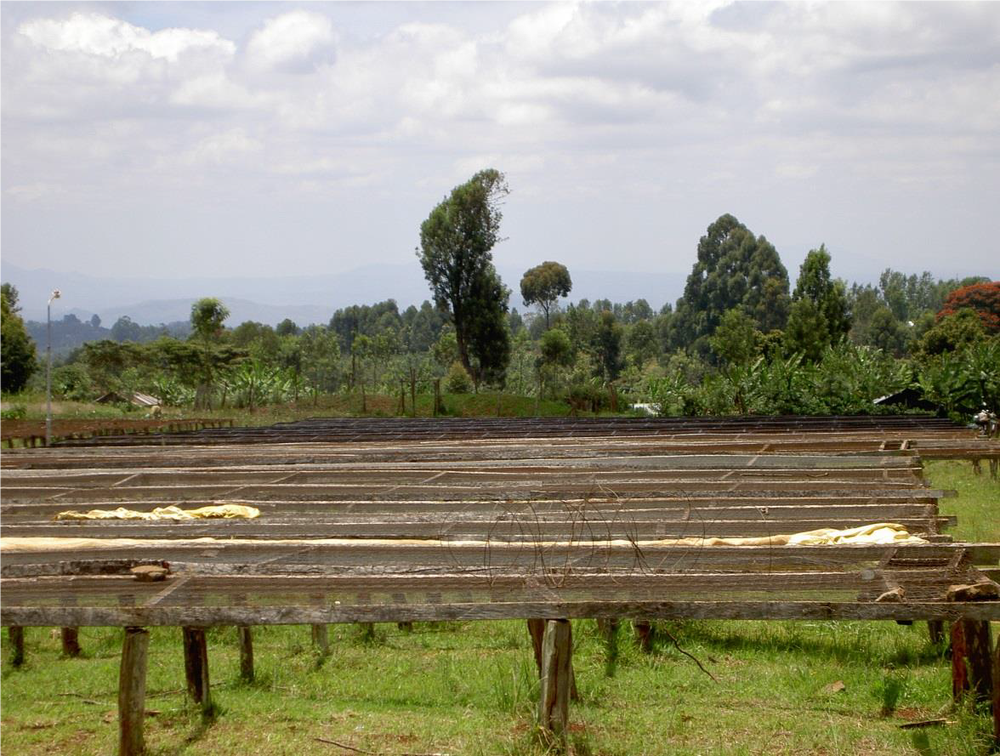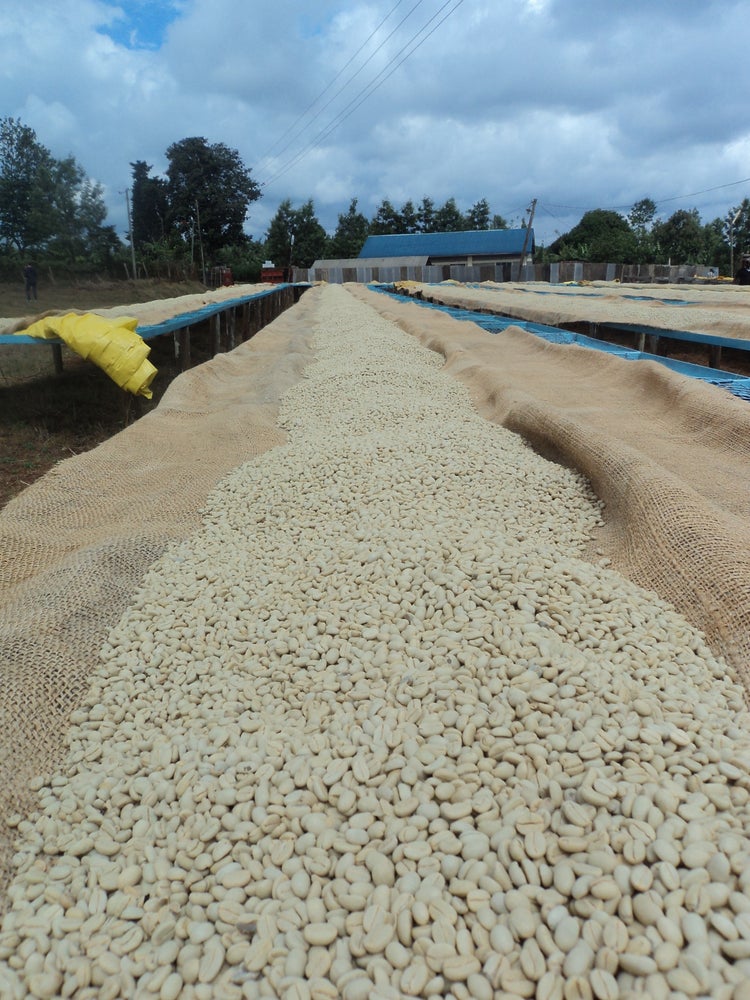About This Coffee
Ndaroni Factory was built 1984 by a group of producers in Karatina who were tired of traveling long distances to deliver their cherry. For this reason, they named the factory, “ndaroini,” meaning “place of rest” in Swahili, one of Kenya’s national languages.
Today, Ndaroni is one of 3 factories operated by Gikanda Farmers Cooperative Society (FCS). Gikanda FCS was founded in 1996 and has developed a reputation for producing lots of the highest quality by continuing to invest in infrastructure, training and supporting their member farmers.
Cultivation
In addition to coffee, many farmers also cultivate macadamias, maize and dairy.
Harvest & Post-Harvest
Smallholders selectively handpick only ripe cherry and deliver it to Ndaroini Factory. At intake, the Cherry Clerk oversees meticulous visual sorting and floating, accepting only dense, ripe cherry.
After intake, cherry is pulped and fermented for approximately 12 to 16 hours. Following fermentation, coffee is washed clean water and graded in grading channels. Then, parchment is laid to dry on raised beds. Workers rake parchment frequently to ensure even drying. They cover drying parchment during the hottest time of day, to maintain slow, even drying and at night, to shelter parchment from moisture. It takes approximately 14 to 21 days for parchment to dry.
AA Grade
Kenyan coffees are classified by size. AA beans are the largest size. AA grade coffees are those that are 17/18 screen size, meaning that they are larger than 7.2 millimeters.
Coffee in Kenya
Though coffee growing had a relatively late start in Kenya, the industry has gained and maintained a impressive reputation. Since the start of production, Kenyan coffee has been recognized for its high-quality, meticulous preparation and exquisite flavors. Our in-country sister company, Sucafina Kenya, works with farmers across the country to ensure these exceptional coffees gain the accolades they deserve.
Today, more than 600,000 smallholders farming fewer than 5 acres compose 99% of the coffee farming population of Kenya. Their farms cover more than 75% of total coffee growing land and produce nearly 70% of the country’s coffee. These farmers are organized into hundreds of Farmer Cooperative Societies (FCS), all of which operate at least one factory. The remainder of annual production is grown and processed by small, medium and large land estates. Most of the larger estates have their own washing stations.
Most Kenyan coffees are fully washed and dried on raised beds. The country still upholds its reputation for high quality and attention to detail at its many washing stations. The best factories employ stringent sorting practices at cherry intake, and many of them have had the same management staff in place for years.

